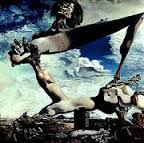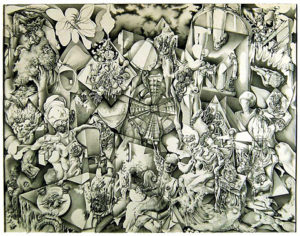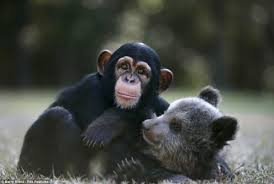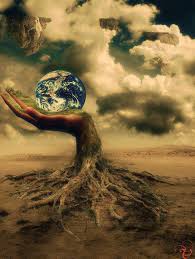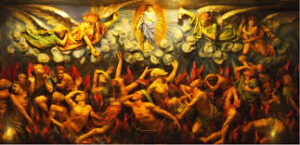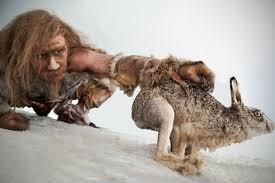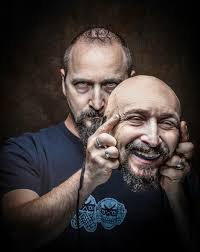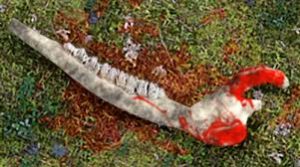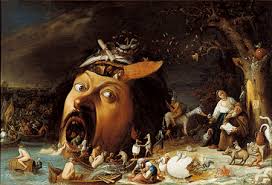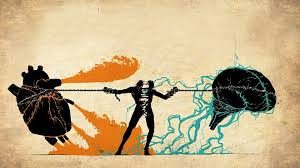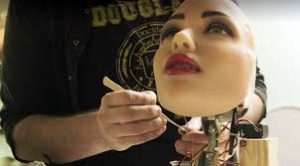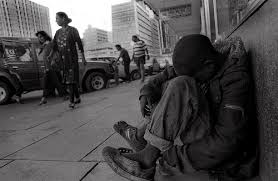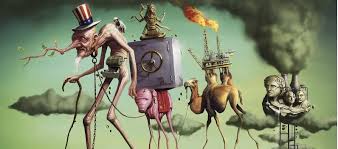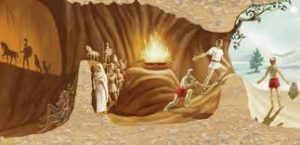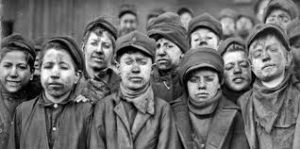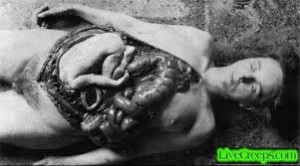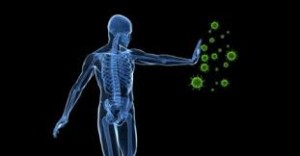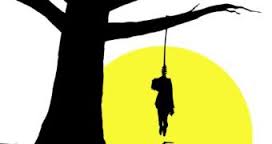Both disease and creativity are related.
Compare the analogy of the landscape of physical experience to the painter’s landscape — which may be dark, gloomy, filled with portents of disaster, and yet still be a work of art. In that regard, every person paints his or her own portrait in living color — a portrait that does not simply sit in a tranquil pose at a table, but one that has the full capacity for action. Those of us now living, say, are in the same life class. We look about to see how our contemporaries are getting along with their portraits, and we find multitudinous varieties: tragic self-portraits, heroic self-portraits, comic self-portraits. And all of these portraits are alive and interacting, and as they interact they form the planetary, mass social and political events of our world.
These portraits obviously have a biological reality. In a manner or speaking, now, each person dips into the same supplies of paint, and so forth — which are the elements out of which our likenesses emerge. There must be great creative leeway allowed for such portraits. Each one interacting with each other one helps form the psychological and physical reality of the species, so we are somehow involved in the formation of a multitudinous number of portraits. I simply want you to keep that analogy in the background.
These portraits, however, are the result of creativity so inborn and miraculous that they are created automatically — an automatic art. At certain levels the species is always creatively embarked upon alternative versions of itself. The overall patterns will remain. Biological integrity is everywhere sustained. What we think of as diseases, however, are quite creative elements working at different levels, and at many levels at once.
Many viruses are vital to physical existence, and in our terms there are gradations of activity, so that only under certain conditions do viruses turn into, say, what we think of as deadly ones. The healthiest body contains within it many so-called deadly viruses in what we may call an inactive form — inactive from our viewpoint, in that they are not causing disease. They are, however, helping to maintain the body’s overall balance. In a way in each body, the species settles upon a known status quo, and yet experiments creatively at many levels with cellular alterations, chromosomal variations, so that of course each body is unique. There are kinds of gradations, say, in the lines and kinds of disease. Certain diseases can actually strengthen the body from a prior weaker state, by calling upon the body’s full defenses. Under certain conditions, some so-called disease states could insure the species’ survival.
In a way, some disease states help to insure the survival of the species — not by weeding out the sickly but by introducing into large numbers of individuals the conditions needed to stabilize other strains within the species that need to be checked, or to “naturally inoculate” the species against a sensed greater danger.
At the minute levels — microscopic levels — there are always some biological experiments being carried out, in a creative effort to give the species as much leeway as possible for effective action. Our body is changed biologically by our thoughts.
Our culture has its biological effect upon the species. I am not speaking of obvious connections in a derogatory manner, such as pollution and so forth. If we were thinking in old terms of evolution, then I would be saying that our cultures and civilizations actually alter the chromosomal messages. Our thoughts affect our cells, again, and they can change what are thought of as hereditary factors. Our imaginations are intimately connected with our diseases, just as our imaginations are so important in all other areas of our lives. We form our being by imaginatively considering such-and-such a possibility, and our thoughts affect our body in that regard. In a way, illness is a tool used on behalf of life, for people have given it social, economic, psychological, and religious connotations. It becomes another area of activity and of expression.
At microscopic level there is no rigid self-structure like our own. There is identity. A cell does not fear its own death. Its identity has traveled back and forth from physical to nonphysical reality too often as a matter of course.
It “sings” with the quality of its own life. It cooperates with other cells. It affiliates itself with the body of which it is part, but in way it lends itself to that formation. The dreams of the species are highly important to its survival — not just because dreaming is a biological necessity, but because in dreams the species is immersed in deeper levels of creativity, so that those actions, inventions, ideas that will be needed in the future will appear in their proper times and places. In the old terms of evolution. I am saying that man’s and woman’s evolutionary progress was also dependent upon his or her dreams.
Now many of the characteristics we consider human — in fact, most of them — appear to one extent or another in all other species. It was the nature of man’s and woman’s dreams, however, that was largely responsible for what we like to think of as the evolution of our species. We learned to dream differently than other creatures.
We dreamed we spoke languages before their physical invention, of course. It was the nature of our dreams, and our dreams’ creativity, that made us what we are, for otherwise we would have developed a mechanical-like language — had we developed one at all — that named designations, locations, and dealt with the most simple, objective reality: “I walked there. He walks there. The sun is hot.” We would not have had any way of conceiving of objects that did not already exist. We would not have had any way of imagining ourselves in novel situations. We would not have any overall picture of the seasons, for dreaming educated the memory and lengthened man’s and woman’s attention span. It reinforced the lessons of daily life, and was highly important in man’s and woman’s progress.
Using the intellect alone, man and woman did not simply learn through daily experience over the generations, say, that one season followed the other. He or she lived too much in the moment for that. In one season he or she dreamed of the others, however, and in dreams he or she saw himself or herself spreading the seeds of fruits as he or she had seen the wind do in daily life.
His or her dreams reminded him or her that a cold season had come, and would come again. Most of our inventions cane in dreams, and again, it is the nature of our dreams that makes us so different from other species.
The creativity of the species is also the result of our particular kind of dream specialization. It amounts to — a unique state of existence by itself, in which we combine the elements of physical and nonphysical reality. It is almost a threshold between the two realities, and we learned to hold our physical intent long enough at that threshold so that we have a kind of brief attention span there, and use it to draw from nonphysical reality precisely those creative elements that we need.
Animals, as a rule are less physically-oriented in their dreaming states. They do dream of physical reality, but much more briefly than us. Otherwise, they immerse themselves in dreams in different kinds of dreaming consciousness.
When ancient man and woman had a series of mass dreams in which he and she learned how to speak. The dreams were like glossolalia — speaking in unintelligible speech sounds — yet the made sense, and man and woman began to speak.
Also when man and and woman were with other men and women in the physical world, he and she could point to stuff to share descriptions with others, but that he or she learned to speak when he and she tried to describe dreams. It was the only way — speech — by which he or she could share data that couldn’t be seen. He or she could point to a tree and grunt, but there wasn’t anything in a dream he or she could point to. He or she had to have a method of expression to describe invisible things. Inventions could have come about when he or she tried to tell others what he or she saw in his or her dreams, too.
